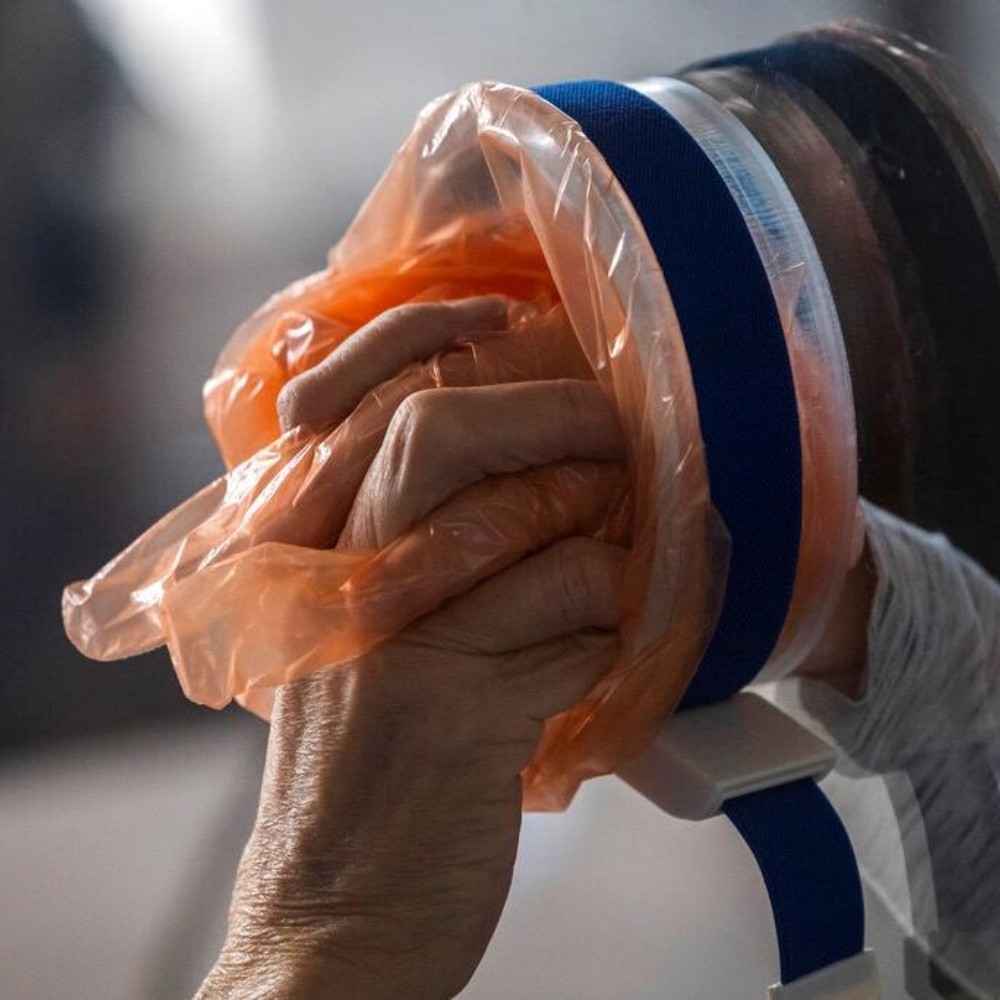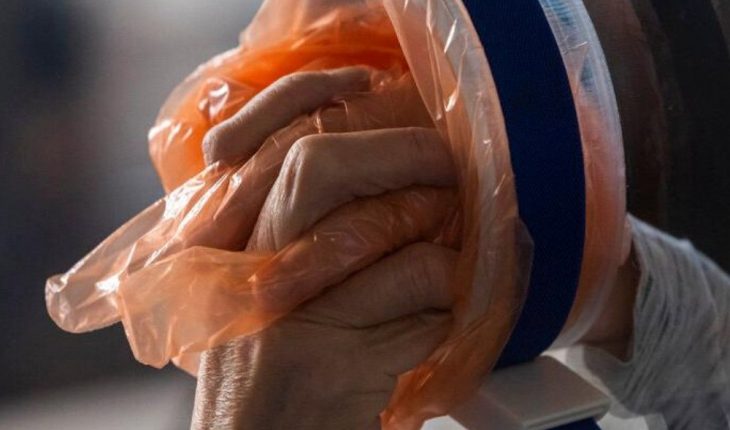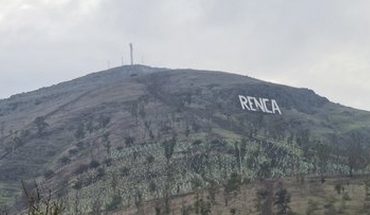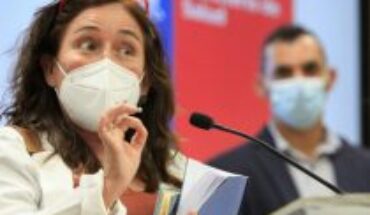
Guadalajara, Jalisco.- The state of Jalisco begins 2021 with a total of 145,198 cases of Covid-19 and 6,008 deaths, 1,095 new coronavirus contagions and 49 deaths are the last reported by the Ministry of Health.Faced with a further rise in the level of covid-19 contagion and casuse deaths and the intention to have a good health landscape to resume the pre-financial classes on January 25 , the governor of Jalisco, Enrique Alfaro, Ramirez, announced last Monday’s new guidelines that will have the second activation of the Emergency Button, which begins this Friday, December 25 and culminates on January 10, 2021.
Stay informed about what matters most to you
Get the most relevant news of the day in your e-mail
Thank you for subscribing!
Check your inbox to confirm your email and start getting the latest news
Take advantage and take the next step
Get our news alerts so you don’t miss anything
Receive notifications
Not bad! You’ve subscribed to notifications
Set up and choose your preferences
Set up notifications
Enter your e-mail
Subscribe
Subscribing involves accepting the terms and conditions
Not bad! You’ve subscribed to notifications
Set up and choose your preferences
The militant of the Citizen Movement party announced that again places and shopping centres will be closed again on weekends, non-essential activities will have to culminate at 19:00, New Year’s Eve festivities will be banned, among other actions, however, this time there will be no limits on public transport.
The Jalisco Ministry of Health (SSJ) reports that until December 19, Covid-19’s contagion positivity rate rose from 42.7% to 43.2%, ICU bed occupancy rose from 47.3% to 53.2% and overall public hospital occupancy rose from 31% to 34%, with north and high north regions peaking at highest levels , while there are regions such as the Southeast and South Highs that decreased their occupation. Faced with the next arrival of winter holidays, which usually involves mobilizing many people to spend the Christmas holidays with their loved ones, the Jalisco Ministry of Health (SSJ) also asks the population to avoid trips that are not necessary or that can be postponed, because the COVID-19 pandemic is active and travel increases the risk of spreading the virus causing this disease. According to the World Health Organization (WHO), “no trip is without risks when considering the possible importation or export of cases”, especially on international travel where long journeys can take place in a very short time (much less than the incubation period of the virus) and spread COVID-19 through several cities or countries. According to the jalisco holy authorities, the risk of SARS-CoV-2 contagion is lower on short road trips (avoid stops, gas stations, restrooms and other public spaces) made only with members living in the same household. On the contrary, the risk increases on long trips, by bus, train or plane; making several stops or traveling with people outside your home. The maximum risk is flights with stopovers and cruise ships.
The second activation of the Emergency Button in Jalisco will last from December 25 to January 10, 2021.
Coronavirus cases and reactivation in Jalisco
Below are the updated figures for the COVID-19 pandemic, according to the new measurement criterion applied in Jalisco from the night of October 6:
COVID-19 EN JALISCO (Last report of the Jalisco Ministry of Health)
Cases
New
Total
Confirmed
1,095
145,198
Discarded
856
274,223
Suspects
Na
20,624
Deaths
49
6,008
It should be remembered that the latest news about reopening trade turns, financial support and cancellation of events has been given as follows in Jalisco:
From November 22, the Via RecreActiva was re-activated in the Metropolitan Zone of Guadalajara, which receives 190 thousand people who on Sundays take over some streets of the city to carry out physical activities. This was done under strict health protocols to prevent the spread of coronavirus.
On November 25, the University of Guadalajara (UdeG) released the report on the effectiveness of the application of the so-called Emergency Button, in which it managed to reduce the incidence of Covid-19 contagions in Guadalajara by up to 27 percent, andl municipality most affected.
On November 27, Alfaro Ramírez and the rector of the University of Guadalajara (UdeG), Ricardo Villanueva Lomelí, following the Radar Jalisco plan, announced the vaccination network that will be carried out in Jalisco once the COVID-19 vaccines reach the entity.
On December 1, it was released that before the arrival of December and the festivities that this month entails among the traditions of the Mexican people, the Jalisco Ministry of Health (SSJ) reported that there will be a maximum cap of 10 people who can gather.
This December 2nd Governor Enrique Alfaro Ramírez, and the secretary of state education, disclosed the route to be taken to return to face-to-face classes in Jalisco from January 25, 2021, also specified that this will be an optional decision for parents, as if they prefer their children to continue with the virtual classes this will be possible.
On 4 December, the Government of Jalisco announced that the Jalisco Ministry of Health has already launched the application of 60,000 rapid antigen tests in the population for sarS-CoV-2 detection, which had been announced on 27 November when the Covid-19 vaccination network was announced.
This December 30, the Jalisco government stated that Hospital General de Occidente (HGO) and the central warehouse are already ready to receive the first doses of the COVID-19 vaccine and begin inoculation of the most vulnerable population.
How do I know if I have COVID-19 and where do I request my test?
And because the coronavirus pandemic isn’t over yet, we remind you of the symptoms of someone who might be infected with COVID-19: fever, tiredness, dry cough, nasal congestion, rhinorrhea, sore throat and diarrhea. If you have any of the symptoms request your appointment to be tested to confirm or rule out that you have the SARS CoV-2 virus.Currently in Jalisco three types of tests are applied to detect cases of Covid-19:
PCR (Polymerase Chain Reaction) tests— detects a fragment of the genetic material of a pathogen or microorganism for the diagnosis of a disease, in this case the SARS-CoV-2 virus, which causes COVID-19. Although PCR test results can take up to 72 hours, they have a higher level of specificity and certainty.
Antigen testing: recently began to be applied in Jalisco. This new diagnostic test is performed by a swab with which a nasopharyngeal sample is obtained. However, the results of antigen results are ready in 15 minutes, as they allow to identify a protein known as “S” or “Spike” of the SARS-CoV-2 virus.
Serological tests: we have rapid tests, which although they do not identify the RNA of the virus as PCRs, do detect antibodies produced against the virus using a blood sample, which is another way to know if the patient is or has been infected.
To request that you be tested to rule out or confirm a Covid-19 contagion in Jalisco there are two telephone lines where you can do the paperwork at no cost:
Jalisco Health Sector Line 33 38 23 32 20
University of Guadalajara hotline 33 35 40 30 01
By phone, health experts will create your medical file and schedule an appointment to give you a COVID-19 test and the results will be notified to you within 24 to 72 hours.What should I do if I have Covid-19?
If Covid-19 is tested positive, the Jalisco Ministry of Health issues the following recommendations in case the patient remains at home:
For those with coronavirus people at home, the Ministry of Health recommends that only one person care for the patient, that the patient is not at risk, and that they exercise caution to wear disposable gloves and protective clothing, such as a cloth or disposable gown. Hand hygiene is essential before and after removing gloves.
The patient should be located in a well-ventilated room and if possible alone or keep a distance of at least one meter from him or her. If you are an nursing mother, she should wear mouth covers and have careful and frequent hand hygiene when she is with her baby. The patient should leave the room as little as possible.
With regard to hygiene measures, the SSJ recommends that cutlery and dishes should be washed with soap and water after use, cleaned and disinfected with diluted chlorine once a day frequently touched surfaces, such as bedroom furniture, bathroom surfaces and toilet, do not shake the sick man’s dirty laundry and wash it , like bed linen and towels, with regular detergent and agor with a washing machine at a temperature of 60 to 90oC.





